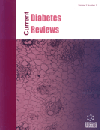
Full text loading...
Neonatal diabetes mellitus (NDM) is characterized by severe hyperglycemia, usually diagnosed in the first few months of an individual’s life. It is a genetic disease and one of the main forms of monogenic diabetes. Changes in different genes have already been associated with NDM, including changes in the gene PDX1.
In this review, we intend to summarize all neonatal diabetes cases caused by PDX1 mutations reported in the literature. For this purpose, we searched keywords in the literature from PubMed and articles cited by the HGMD database. The search retrieved 84 articles, of which 41 had their full text accessed. After applying the study exclusion criteria, nine articles were included.
Of those articles, we detected thirteen cases of NDM associated with changes in PDX1; the majority in homozygous or compound heterozygous patients. Until now, variants in the PDX1 gene have been a rare cause of NDM; however, few studies have included the screening of this gene in the investigation of neonatal diabetes.
In this review, we reinforce the importance of the PDX1 gene inclusion in genetic NGS panels for molecular diagnosis of NDM, and systematic morphological and functional exams of the pancreas when NDM is present.

Article metrics loading...

Full text loading...
References


Data & Media loading...
Supplements

